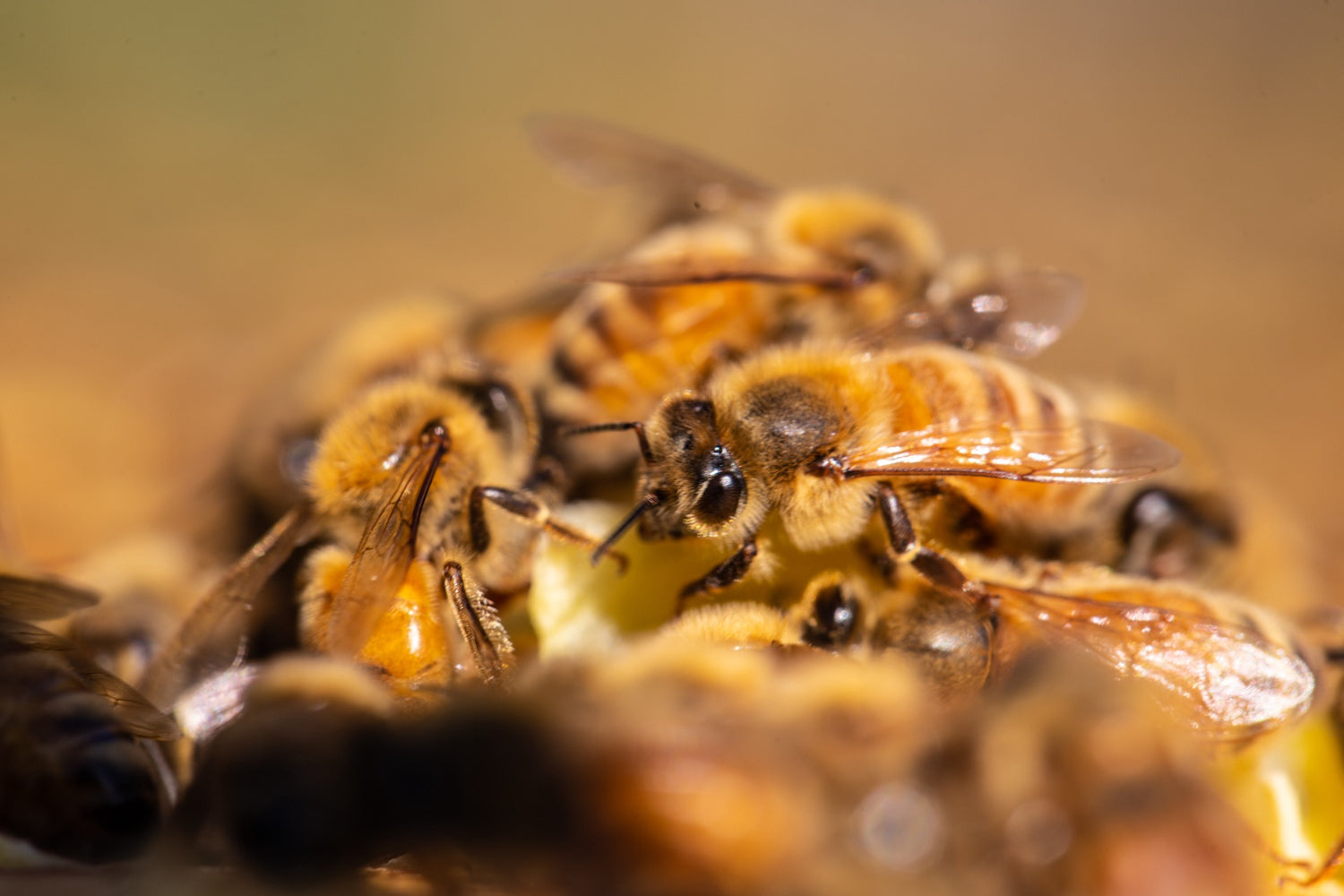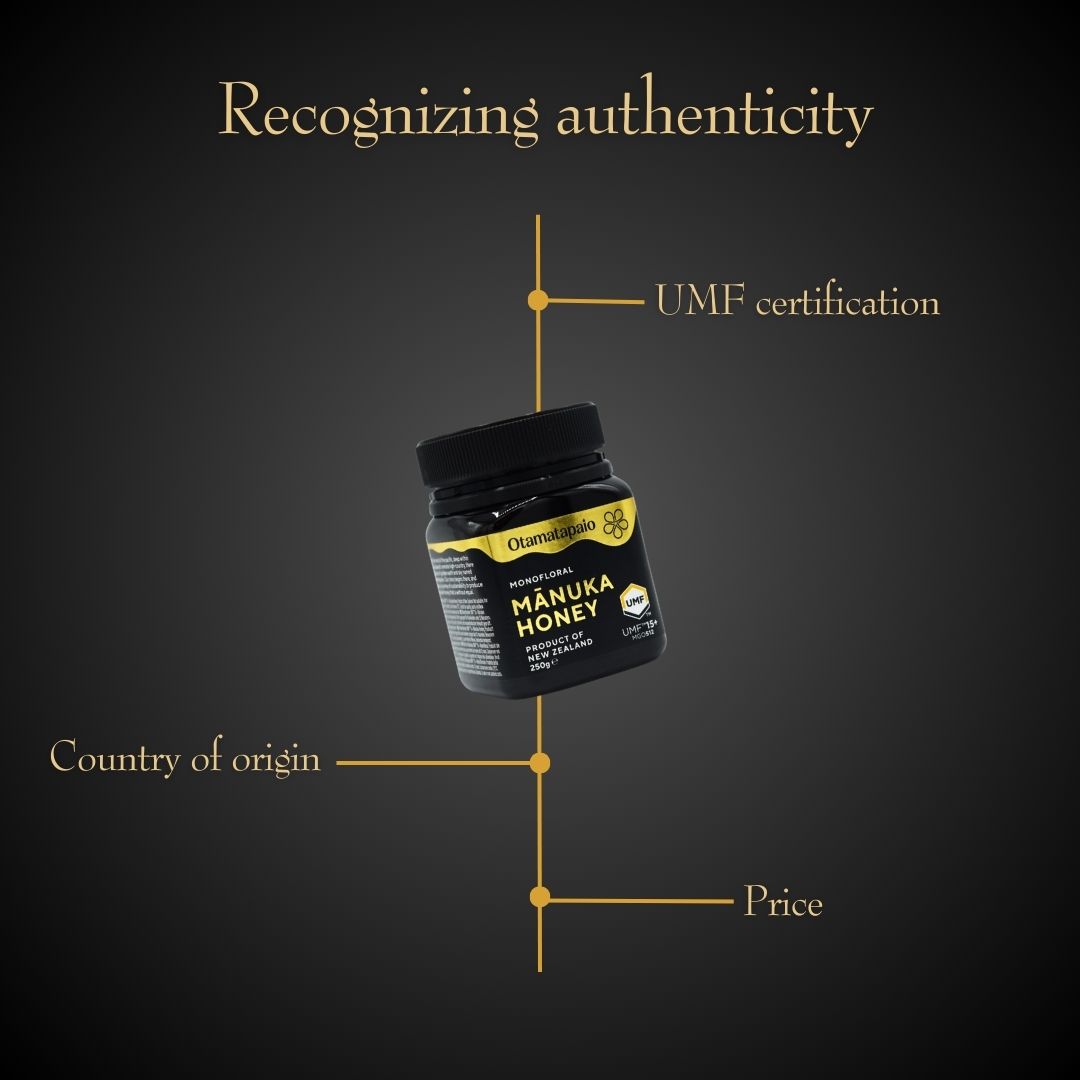Benefits, history and uses of the world's most studied honey
When the word “liquid gold” is mentioned, wellness enthusiasts and natural lovers of the natural immediately think of a special product: Manuka honey. This honey, which comes from a remote corner of the world -New Zealand- is celebrated not only for its intense and unmistakable flavor, but also for its extraordinary beneficial properties.
In this article we will explore everything there is to know about Manuka honey, focusing on four pillars:
- What is Manuka honey
- The benefits of Manuka honey
- The history of Manuka honey
- How to use Manuka honey.
If this product and the benefits it can provide interest you or if you are looking for authoritative guidance on the subject, you are in the right place.
What is Manuka Honey?
Manuka honey is a special type of honey produced by bees pollinating the flowers of the Manuka tree (Leptospermum scoparium), a plant native to New Zealand. The uniqueness of this honey lies in its chemical composition: unlike many other honeys, Manuka contains some natural compounds that give it its antibacterial and anti-inflammatory properties, Methylglyoxal (MGO) and the bioactive compound Leptosperine.
But beware. There are unfortunately many counterfeits on the market that do not possess the same qualities as real Manuka honey. Certifications are essential to ensure the authenticity of this honey, as only genuine New Zealand Manuka honey carries the guarantee of purity and quality.
UMF Certification: A Guarantee of Quality
When purchasing Manuka honey, one of the most important aspects to check is the presence of UMF (Unique Manuka Factor) certification. This grading system, created by the Unique Manuka Factor Honey Association (UMFHA) in New Zealand, ensures that the honey meets strict standards of purity, quality and content of natural compounds.
UMF certification represents not only the antibacterial potency of honey but also the presence of other key natural compounds that intensify its benefits.
The four factors tested in Manuka honey are MGO, Leptosperine, DHA and HMF.
The organic compound Methylglyoxal (MGO) and the bioactive compound Leptosperine give Manuka honey its unique antibacterial power.
Dihydroxyacetone (DHA) is used to measure shelf life, while hydroxymethylfurfuraldehyde (HMF) is an indicator of changes due to heating and storage.
Labels carry a numerical value (e.g., UMF 10+, UMF 15+, up to UMF 20+ and above), with higher numbers indicating higher concentrations of active ingredients. Opting for UMF-certified Manuka honey is not only a guarantee of authenticity, but also the assurance that you are buying a truly effective product that is safely sourced and meets New Zealand's most stringent standards.

Benefits of Manuka Honey
Now to the heart of the matter: why all the hype around Manuka honey? Its benefits go far beyond those of ordinary honey, and it is considered a true superfood due to a number of beneficial properties and practical applications.
Manuka honey is a natural immune system booster: with antibacterial, antiviral, anti-inflammatory and antioxidant properties, this monofloral honey is truly a wellness powerhouse. And it doesn't end there: it is rich in amino acids, vitamins B and C, minerals, proteins, carbohydrates and bioactive compounds, making it a 100% natural superfood for your health.
No other honey in the world has the same amount or complexity of natural components as New Zealand Manuka honey.
Antibacterial and Anti-inflammatory Properties.
Manuka honey is famous for its antibacterial properties. Studies have shown that it can help fight skin infections and promote healing of wounds and minor burns. The MGO present in Manuka honey is particularly effective in blocking the growth of bacteria. For this reason, it is also used as an ingredient in dermatological creams and lotions.
Immune System and Digestion
When taken regularly, Manuka honey can strengthen the immune system, making it a valuable ally in cold weather or times of stress. In addition, the levels of antimicrobial and anti-inflammatory bioactivity found in Manuka honey stabilize the diversity of gut microbes, improve digestion and protect gut health, making this natural superfood an excellent probiotic.
And it doesn't end there, as it can help against sore throats, coughs and dental plaque buildup. A teaspoon of Manuka honey in the morning, especially in the season of sickness, is a healthy and delicious habit for oral and digestive health.
The History of Manuka Honey
Manuka honey is inextricably linked to the history and culture of the wonderful land of New Zealand. It is part of traditional Māori culture and medicine, to the point that it is even featured in many traditional tales.
The history of Manuka honey begins many centuries ago, when the Maori discovered the properties of the Manuka tree and began using it in their traditional medicine to treat infections, wounds, and respiratory problems.
However, Manuka honey as we know it today has only begun to gain international fame in recent decades.
From Maori Folklore to Modern Research
In the 1980s, some scientists began to study the antibacterial properties of Manuka honey more thoroughly , discovering the now famous MGO. This discovery transformed Manuka honey from a local remedy to a global phenomenon, finding a place in supermarkets, natural products stores, and even clinics.
Protecting a Natural Heritage Site
Because of the growing popularity, New Zealand has taken steps to protect the integrity of Manuka honey, introducing certifications that guarantee its quality. UMF is the most comprehensive certification, the only one that verifies and tests the presence of the 4 natural components that make Manuka honey so special. Thanks to this certification and classification system, consumers around the world are assured that they are choosing an authentic product that is right for them.
Today, authentic Manuka honey is rigorously checked and certified, to provide consumers with a pure, effective and safe product.

How to Use Manuka Honey
Finally, we come to one of the most interesting parts: how to use Manuka honey? Its applications are many; let's look at some of them together.
Quick use: a teaspoon a day for health
A teaspoon of Manuka honey in the morning can boost the immune system, improve digestion and provide a sweet dose of energy. It is also perfect for sweetening herbal teas or yogurt, but be careful not to heat it too much so as not to alter its beneficial properties.
In the kitchen: gourmet recipes with a touch of Manuka
Manuka honey, besides being valuable for health, can add unmistakable flavor to gourmet dishes. Try it on aged cheeses or to glaze white meats: its sweet, intense flavor lends a sophisticated touch to any preparation.
Manuka honey, the luxury of well-being
Manuka honey is more than just honey: it is a true ally for well-being, rich in tradition and taste. From its extraordinary origin in New Zealand to the discovery of its beneficial properties, every aspect of Manuka fascinates and enchants. If you are looking for a natural food that combines taste and benefits, Manuka honey might be the little luxury you've been looking for.
Authentic, UMF™ 15+ certified Manuka honey, harvested directly in New Zealand by the country's best beekeepers, is available on our online shop. Each jar is a testament to the value and craftsmanship of each individual process that leads to the finished product.
Otamatapaio Manuka Honey is the pampering wellness, taste and purity to take care of your health and feel naturally better.




Leave a comment
This site is protected by hCaptcha and the hCaptcha Privacy Policy and Terms of Service apply.